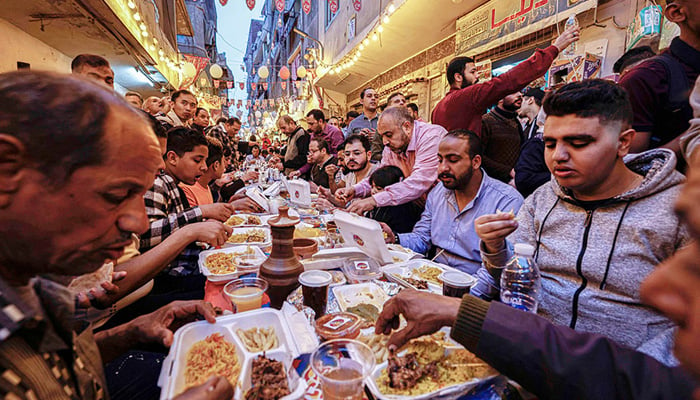Iftar wins Unesco recognition as ‘cultural heritage’
Communities observe tradition of Iftar with religious zest as it represents Muslim culture all over the world
The tradition of Iftar — the meal that breaks the daytime fast during the holy month of Ramadan, widely observed by Muslims across the globe — has been added to the United Nations Educational, Scientific and Cultural Organisation (Unesco) list of intangible cultural heritage.
The application for the sociocultural tradition was jointly submitted by Iran, Turkey, Azerbaijan, and Uzbekistan to the Unesco.
Though the concept of Iftar is more religious than cultural, the communities observe it with such zest that it represents the Muslim culture wherever Muslims live in the world.
The centuries-old community tradition was recognised by the Intergovernmental Committee for the Safeguarding of Intangible Cultural Heritage, which has been meeting in Botswana since Monday.
Marking the termination of fasting from dawn to dusk that teaches resilience and patience in hardships and hunger, Iftar is observed by people of all ages, genders, and backgrounds upon completion of all religious and ceremonial rites, Unesco said in an official statement.
Iftar, which follows the sunset call to prayer and often by different religious ceremonies according to the spirit of Ramadan, is associated with gatherings "strengthening family and community ties and promoting charity, solidarity and social exchange".
In several Muslim countries, it is customary to mark Iftar by eating a date accompanied by tea. Recipes for dishes and pastries, however, vary greatly depending on the country.
"The ceremonies and rituals related to Iftar are also practised by people who do not necessarily fast during the month of Ramadan," the statement read.
The elders transmit the knowledge and skills within the families "through oral instruction, observation and participation". The children and youth are often entrusted with preparing the components of traditional meals for Iftar feasts.
Moreover, the parents also transmit knowledge about the benefits of fasting and the social values and functions of Iftar to their younger ones.
Iftar is often supported by governmental entities, non-governmental organisations, and charities, as well as through television, radio, press, and social media to promote kindness and compassion towards the underprivileged.
-
More than 500,000 without power as blizzard hits US Northeast
-
Charli xcx details boozy second wedding to The 1975's George Daniel: 'Everyone was hungover'
-
ICE agent misfired bullet into Minnesota hotel’s guest room
-
Piers Morgan reacts to photo with Ghislaine Maxwell
-
UK data privacy regulators raises safety concerns, warn against AI-generated images
-
Rape suspect flees aboard after mistaken prison release
-
Jack Hughes' patriotic words spark calls for Tate McRae to dump her boyfriend
-
US government to cease collecting tariffs after Supreme Court ruling












